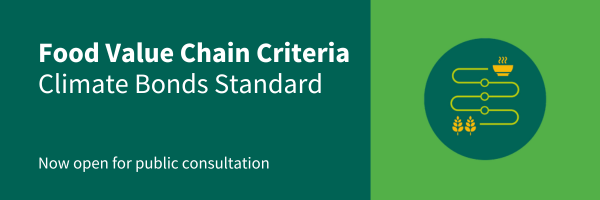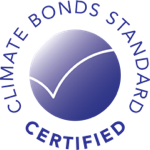
Status: The Food Value Chain Criteria are currently under Public Consultation from 17 February until 17 April 2025. Click here to participate!
Aug 2024: Technical Working Group (TWG) Launch
Feb 2025: Start of Public Consultation
Overview: The Food Value Chain contributes significantly to global greenhouse gas emissions, accounting for about one-third of agri-food system emissions. This sector encompasses all post-farm activities, including:
- Transportation
- Processing
- Packaging
- Storage and distribution
- Retail
- Food service
- Household consumption
- Waste disposal
Key facts:
- Agrifood systems cause 35% of global emissions
- Food Value Chain emissions are rising faster than farm-level emissions
- Main emission sources: food waste (7.9%), household consumption (7.3%), retail (4.2%)
As global population grows and consumption patterns shift, addressing Food Value Chain emissions becomes crucial for climate mitigation. This is especially important in high and middle-income countries, where these emissions are increasing rapidly.
Focusing on energy efficiency, waste reduction, and sustainable practices throughout the Food Value Chain can significantly impact overall agrifood emissions and support global climate goals.
What's Included: The criteria for the Food Value Chain will include the establishment of guidelines aimed at maximising viable bond issuances. These guidelines will enable stakeholders to identify investments that deliver measurable climate mitigation benefits or demonstrably increase the adaptation and resilience of food value chain operations to the impacts of climate change. The Technical Working Group has overall responsibility for the content of the criteria, which should be achieved by consensus.
In developing the Food Value Chain Criteria, the Technical Working Group will need to balance the following objectives:
- Define scientifically robust, verifiable targets and metrics.
- Base the criteria on transformation pathways that account for differences in context across various parts of the world and at different stages of the food value chain.
- Ensure the criteria are usable by the market and understandable for non-scientific audiences.
- Make the criteria feasible, realistic, implementable at scale, and affordable.
- Achieve climate outcomes without creating negative environmental and social impacts.
Why It Matters: Food Value Chain emissions vary significantly across countries and sectors, demanding tailored reduction strategies. In developed nations, post-production activities dominate agrifood emissions, while high-income consumption patterns drive global emissions. Addressing these challenges requires a holistic approach integrating sourcing practices, operational efficiencies, and consumer behavior modification.
Key actors in high-income countries' food value chains, such as retailers, manufacturers, and distributors, hold significant leverage for change. They influence upstream emissions through procurement, address their operational footprint, and shape consumer choices affecting both upstream and downstream emissions. While production-level emissions remain highest globally, post-production sectors capture most climate finance, with manufacturers and distributors receiving the largest share due to their economic clout. This positions them as crucial drivers of agri-food system transition through strategic financing deployment.
Several critical intervention areas have been identified across GHG emission categories and value chain stages. Reducing food loss and waste, along with shifting consumption away from high-emission animal proteins, offer the greatest mitigation potential. However, effective strategies are highly context-dependent. Other promising areas include increasing renewable energy use and energy efficiency in food preparation and storage, developing green cold chains, adopting climate-friendly freight transport, and optimizing transport use. Climate-friendly packaging and green facilities may also contribute, though their global impact is harder to quantify. While sourcing practice changes significantly influence emissions across the value chain, current quantification efforts mostly focus on deforestation-free sourcing, addressed in separate Climate Bonds Criteria.
Applicability: The Climate Bonds Standard and Certification Scheme is intended to provide an easy-to-use screening tool that provides a clear signal to investors and intermediaries on the climate integrity of Certified Climate Bonds. At the core of the Standard is a suite of sector-specific eligibility Criteria which sets climate change benchmarks that are used to screen debt instruments, assets and/or entities, to ensure the integrity of their contribution to climate mitigation, and/or to adaptation and resilience to climate change.
Climate Bonds Team:
 |
 |
 |
|
Marian Rodriguez
Head of Standards
|
Reyes Tirado
Agri-Food Standard Lead
|
Aishwarya Sankar
Sustainability Analyst
|
Technical Working Group:
Each TWG member contributes to the criteria development in their personal capacity and as a content experts in the field. This contribution does not imply endorsement either from Climate Bonds Initiative to the organisation the member is currently employed with, nor of the organisation to this work.
If you have technical or industry expertise in the sector and would like to collaborate in this work, reach out at aishwarya.sankar@climatebonds.net.
|
|
 |
 |
 |
 |
||||
|
Ruth Rennie
Criteria Technical Lead
Rennie Sustainability Consulting
|
Dr. Souhir Hammami
Director
Scientific and Technical Information Department
International Institute of Refrigeration (IIR)
|
Dr. Shenggen Fan
College of Economics and Management
China Agricultural University Beijing
|
Dr. Prajal Pradhan
Agricultural Engineering and Environmental Management
University of Groningen
|
Francesca Nugnes
International Fund for Agricultural Development PARM
|
||||
 |
 |
 |
|
 |
||||
|
Isabel Nepstad
CEO
Bella Terra
|
|
Liyuan Wei
School of Physics
University of Sydney
|
|
Joe Robertson
Executive Director
Citizens' Climate International
|
|
Hassan EL Bari
Professor
IBN Tofail University
|
|
Dr. Christopher Martius
Team leader, Climate change, energy and low-carbon development
University Centre for International Forestry Research (CIFOR)
|
|
|
 |
 |
|
 |
||||
|
Saloni Shah Green Economy specialist, Agribusiness European Bank for Reconstruction and development |
DING Shanshan (Helen) Green Supply Chain and Finance Director Institute of Public and Environmental Affairs (IPE) |
Matthew Unerman Food sustainability manager Independant consultant |
Liuba Marchionne Sustainable Food Systems Advisor Independant consultant |
Dr. Jan Broeze Researcher, Data and Informatics and Supply chain design Wageningen University and research |
||||
|
Industrial Working Group:
|
||||||||
[1]. .Costa et al., 2022. Roadmap for achieving net-zero emissions in global food systems by 2050. https://www.nature.com/articles/s41598-022-18601-1




